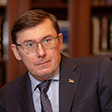Declaration Of The Humankind Communities
Ukrainian (original), Russian and Belarusian texts of Declaration here
...........................................................................Translated from Ukrainian by Alexander Svitych
Belief in the unity of humankind is declared to be a core principle.
This belief means that:
1) If you do not understand the text set forth below, it is not for you. The new world will be complex, and its understanding will be complex too. Claims of the text complexity shall not be accepted or reviewed.
2) Denial of the possibility to implement the ideas below shall not be accepted or reviewed, as it contradicts the core belief in the possibility of the same.
3) Silence on these ideas overcome network properly (through social networks), because public or corporate media are not interested in their distribution.
4) Dissemination and discussion of these ideas, as well discussion of the ways to implement them and the consequences of the such, is welcome.
5) Those who support and spread these ideas are considered their followers. The followers identify themselves beyond the boundaries of nation-states and any other unitary identities.
6) Attempts to emasculate, substitute or twist these ideas shall be suppressed ruthlessly by their followers during discussion. Preference is given exclusively to the type of mindset focused on the unity of humankind communities in the face of the almighty states and corporations.
7) Destructive actions during implementation of these ideas shall be suppressed ruthlessly by its followers. Preference is given exclusively to constructive ideas aimed at implementation of ideas and their development.
DECLARATION OF THE HUMANKIND COMMUNITIES
.................................................................................Communities of the world, unite in networks!
We are the ones who demolished the Soviet Union. We still remember it. We are also the ones who tried to build a liberal democracy and came across the problem of lack of experience in overcoming the traps of freedom. We have seen both systems, and can speak based on broader experience than those who have lived in the world of freedom limited by the power of states and corporations, and who try not to notice this fact.
In the face of God and humankind, contemporaries and descendants we declare our vision of the world perspective, our aspirations, our hopes, and our dreams. The approaches we propose are both ideals that we strive for and milestones that we go for.
The crisis of the modern world
The modern world is undergoing a serious crisis. The ruling class in various countries of the world is trying to portray this crisis as simply a financial or economic trouble that can be overcome at meetings of the world leaders via coordination of economic and social policies.
From our part, we believe this crisis is a civilizational one. It is rooted in the essence of the simplified existence of humankind that lost prospects of its development beyond mere survival, lost its raison d'etre amidst utilitarian consumption, and lost its grand and unattainable dreams.
Humankind is becoming more united in terms of technology and culture. At least the world ruling class is untied by the common interests in retaining their financial power via bank secrecy and non-public state budgets. The ruling classes are also united by the common interests in retaining their political power via democratic elections, manipulation of which has become so apparent that more and more people around the world are refusing to participate in them.
It went unnoticed somehow that the heads of transnational corporations and financial networks – the new oligarchs of the new time – joined the world ruling class. As of today, the world is run by CEOs of transnational corporations, which have actually privatized the states, rather than by politicians. The new world ruling class is a class of corporates, not statesmen.
The role and place of corporations is not regulated in state constitutions, thus making states incapable of countering the omnipotent power of corporations. New supranational polities that exert a systematic influence on the world (WTO, IMF, NATO, etc.) are not regulated either in state constitutions. Local communities are trying to bargain for bigger empowerment within states. However, such empowerment is impossible under the principle of subsidiarity that treats local authorities as auxiliary to the central ones.
We live in the world of shared sovereignty, yet still pretend that sovereign constitutions work. We need fundamentally new constitutions. However, the current constitutions cannot be changed without great social conflicts and civil disturbances, as their revolutionary heroism and undoubtedly great achievements left an important mark in history.
Communities divided by state borders still cannot get their ruling classes under control, as their public, financial and social resources have been privatized by separate groups of people that have historically formed the ruling castes. Changing people in power in different countries does not change the ruling castes of these countries. If such phenomenon could be tolerated before, as long as the new political leaders of the ruling castes introduced new ideas, today it is no longer acceptable, as the new political leaders neither bring new ideas nor new perspectives.
After the collapse of the USSR the world lost the last hope for a society built on the principles of collective governance with non-utilitarian goals. Liberal democracy has turned out be a non-alternative form of human development and continues to degenerate into a dangerous form of consumer slavery.
Consumer ideals have not only gripped the general public. Most dangerously, consumer ideals have also captured the minds of the ruling classes. The ruling classes believe themselves that growth of consumption equals human development. The issue is about drastically changing motivations and prospective aspirations of humankind, which cannot be done by the ruling classes on their own.
Intellectuals that have always been at the cutting edge of ideological movements have turned into creative class. This class serves the ruling classes in the processes of scientific cognition and technological progress, directed to meet demands of the consumer society.
The fact that consumer ideals have captured the minds of intellectuals is fatal for humanity. Intellectuals gave up the quest for new transcendental ideas, new development perspectives of the human civilization, new conceptual spaces that can be explored by the humanity. Intellectuals have fallen in the trap of post-modernism, and are struggling there without a chance to get out on their own.
Post-modernism destroys reality, replacing it with discourses and language games, thus creating and promoting simulacra. Since it is oriented at endless creation and continuation of the present, post-modernism does not allow seeing new prospects and new horizons. Post-modernism emphasizes plurality of truths, and thus does not allow comprehending a complex truth. Post-modernism limits totality in favor of eternity, and fundamentality in favor of detalization, and prevents to grasp totality of profoundness as a strong motivation in the process of cognition.
The youth that is engaging into detalization cannot have strong motivations in cognition, because it is not interesting, exciting, or heroic. Having killed heroism of achievements, post-modernism has actually caused castration of spirit. Post-modernism has killed strong motivations of the youth, thus causing a tremendous damage to humankind that is beyond repair. Since post-modernism is the first global philosophy, humankind suffers from it today none the less than it did previously from communism or national socialism which were local phenomena.
Previously used by Francis Bacon to mislead the ruling classes, the science of today suffers from the birth injury and lies about itself. The scientists of the modern age understood that science was rather about curiosity and enthusiasm of the dreams. Still, they tried to persuade the ruling classes that knowledge was about power and new opportunities for consumption.
A social agreement was in place as long as the spirit of science – religious in essence – allowed comprehension of the conventionality of utilitarian motivations for cognition. This agreement implied that scientists would satisfy their curiosity, with the results of this curiosity creating new opportunities for empowerment for the ruling class, as well as new opportunities for consumption for the general public.
It became clear in the 1980's and 1990's that power and comfort were provided not by science itself, but by technology that is only indirectly connected to science. Technology actually superseded science, as technological development could be funded by corporations besides states. Technologies funded exclusively by states develop much slower. At the same time, the technological breakthrough to a large extent took place in the telecommunications industry only.
In terms of the social aspect science, in particular fundamental one quickly lost to the science oriented at technological achievements. Today we are witnessing a situation when the development of fundamental science ceased from the 1960's. The last man-made flight to another planet was an 'Apollo-17' moon-flight in 1972. Since then no man-made flights were made, as consumer society has been unable to address the question 'why' with a utilitarian explanation.
In the past few years humankind has tried to turn back to space travel, including, first of all, a man-made flight to Mars. However, with a few exceptions, consumer civilization does not give an answer to the question why we need to go Mars.
The ruling classes pretend than nothing has happened, as their credibility and trust towards their scientific view of the world is a pre-requisite to maintain their power and wealth. Scientists working for technological innovations also share a common idea that science is doing fine. The same thing has happened to science as to politics or social structure of the society – consumer motivations have superseded any others.
Science fiction has yielded to the mystic and magic fantasy. The science that stopped dreaming cannot in principle move forward. At the same time the mystic and magic fantasy in its intentions is already a dream of a new direction of intellectual activity – constructivism.
Science can hardly grasp the ambitions of constructivism as it removes the proper condition of the scientific cognition – belief in the objective reality. Constructivism freely uses multiple realities, carries out simulations, including beyond the obvious reality – both in actual and virtual realities, and tries to comprehend not the just the World, but the Extra-world.
Constructivism that grows out of science must break away from it by the power of philosophy. It must leave to science what it can do best – acquisition, classification and popularization of knowledge. Science will explore the new horizons, but constructivism will open them.
Science must undergo a crisis to give an intellectual leadership to constructivism. At the same time constructivism must formulate its philosophy and its civilizational motivations, which can be done with common efforts of intellectuals through their self-sacrifice, and without funding of states and corporations. Only after proving its motivational capacity and intellectual leadership amidst the crisis of science, can constructivism become a new hope for humankind.
Hence the human civilization has turned into a consumer one. It has lost non-consumer perspectives, it does not notice new development horizons beyond the obvious reality, and it does not venture out of the Cartesian world. In terms of the world paradigm humanity can no longer develop within the boundaries of science, post-modernism and ideas about the World only. Humankind must go beyond these boundaries. In terms of the social aspect humanity can no longer develop within the boundaries of states, nations and territories.
Humankind needs new non-consumer motivations, new development horizons beyond the obvious reality, new ideas about the World and the Extra-world. We must go beyond the boundaries of science and post-modern philosophy.
This means that humankind must become united and realize its perspective of unity. This also means the division of the social world into bankrupt states must be changed to a network of communities with various motivations – communities that can compete with states and transnational corporations for public resources.
Humankind communities
In Ancient Greece politics was understood as a process of balancing different social groups. In the times of states politics was an art of statecraft, which benefited the world politicians. In the times of corporations politics has become a process of balancing between the state and corporate interests, which takes away benefits from the world politicians corrupted by corporations.
The perspective for politics lies in the return of its original sense. Politics must become again a process of balancing different social groups without participation of states and corporations. Such balance must be reached via intellectual means, as social relations in the network of communities have become too complex to reach this balance on the grounds of even very attractive common interests. Complex principles and not interests must be the core of the politics of future.
Interest groups and communities united via common principles and non-utilitarian motivations are totally different things. Society must be dominated by communities rather than interest groups. Communities that have common principles and common transcendental motivations will also win over any interest groups from a historical perspective.
Nations, states and their territories will remain toys for average people, with mass media reinforcing their illusions. The ruling classes have long lived beyond nations, states and territories. The world communities will always lose to the ruling classes as long as they hold on to the old ideas. The world communities need to understand their network unity and organize themselves in face of the limitless power of states and corporations.
The question today is not about re-establishing separate states. The question today is about re-negotiating the social agreement that has remained unchanged in its main principles since the times of Hobbs, Locked and Russo.
These principles include giving up natural rights in favor of the state for the sake of common security, ensuring by the state of development; acceptance and obeying the laws for the sake of common good, separation of powers within the state, collection and usage of public taxes by the state, and protection of state sovereignty. This common agreement was set up between the society and the state. It is now time to review the agreement to increase public functions of communities and introduce direct corporate infrastructure service of communities without participation of the state.
Communities as holders of the systematically organized motivations become the new forts of humankind, new subjects of civilizational actions. Such communities can be both archaic and affiliated with national cultures and territories, and innovative and linked into social networks via new communication media – Internet and mobile connection.
The new social agreement in essence opposes globalism. Humankind communities advocate for fragmentation of the world versus its integration, for differentiation of the norms versus their unification.
Globalization is the process of legalizing corporate power over the world, the process of integrating the world via the almighty power of the states corrupted by corporations, and the process of unifying the motivations and norms of cohabitation in their purely utilitarian and consumer quality.
At the same time fragmentation is a process of legalizing and empowering communities that oppose corporations. In this process the power of communities goes beyond the global dimension, including the extra-planetary dimension (heliosity, metaversum). This is a process of differentiation of motivations, and in particular formulation and promotion of transcendental motivations.
Local communities within the states must give place to communities of social networks that are no longer bound by the notions of nation, state, or territory.
Such approach leads to the idea of the united humankind composed of the fragmented network communities that resist the corporate and state globalization.
Humankind is not the result of globalization. Humankind is the result of the civilizational fragmentation and comprehension of its unity via the self-organized network of fragmented communities at the level of transcendental conceptions.
The agent of humankind is not a nation, a state, a corporation, or any combination of the same (for instance, international community). Humankind is not a sum of human individuals.
Nor does the agent of humankind appear in the field of law, as an agent is not a legal representative whatever rights may be granted. Law is the product of states and corporations and is ensured by them.
The motivations and conceptions of the future (dreams) are always outside the scope of law and form the transcendental basis of any civilization.
The agent of the united humankind, a proto-civilizational formation and a unit of the new world order is a community implanted into the topological (not geopolitical) network of human relations – a network community. This is a type of community that holds the public reflexive awareness of the united humankind and performs actions based on such awareness.
The agent of the united humankind represents not a legal, political or economic stance, but rather a philosophical and conceptual one, the one that creates transcendental motivations based on inherited dreams. The agent of the united humankind is an intellectual of a community and a community itself that upholds its ideas, and not a politician, an economist or a lawyer.
Overcoming state monopolies
The main monopoly owned by the states is the monopoly for recognizing identities. Community must regain the right to change and form complex identities independently, without state interference. As long as identities were of the unitary nature (named with one word by form, and by contents religious from the ancient world to the modern age, and national from the modern age until today), states could use them to control public consciousness. Today, when identities are acquiring a multiple nature (politary, named with several words), thus becoming a function of self-activity, creativity and communication of social networks, state interference must be limited drastically. The combination of identity contents corresponds to the principle of shared sovereignty, and is a free choice of every man on the planet.
The second state monopoly is the monopoly over all kinds of central power that the state agreed to separate into legislative, executive, judicial and external branches. These powers must be considerably demonopolized. First of all, the state must give up its monopoly over judicial power, meaning judicial power must cease to be a state one. Judicial power must become a global and corporate one, and its service must be sold to network communities for a defined term under competition between different judicial corporations. The competing judicial corporations must be subject to special procedures of the statistical and selective audit, public announcement of complaints and audit results, etc. Secondly, the legislation systems of different countries must be harmonized with respect to the main rights and liberties, as well as the principles of "shared sovereignty", 'superdiarity', "public resource" and "financial transparency".
The third monopoly owned by the state is defending its territory and public ownership of the territorial infrastructure. Today this monopoly has been in fact taken over by corporations. This has happened all over the world, and states find it more difficult to ensure infrastructure maintenance. A lot infrastructures have become obsolete and not renewed, the phenomenon which exists both in the developed and developing countries. As of today, infrastructures have three subjects – state, corporation and public. In addition, only the public represented by territorial communities gets the right to control the territory and its infrastructures, as it is the only subject that advances public interest.
The fourth state monopoly is the monopoly to exploit public resources, in particular mineral resources, rivers, lakes, land, etc. This monopoly must be destroyed first of all at the level of access to information about the present public resources, their usage and the results of such, including money income and other social benefits. Any public resource shall belong to a territorial community capable of controlling the public functioning of this resource. Corporations that use a public resource shall not receive more than half of the money and social benefits generated. States must be taken out of control of the public resources, as they get corrupted by corporations too fast.
The fifth monopoly is the so called state classified information which is in truth the information about the usage of the state public resources for private purposes of state officials and / or corporations. The only type classified information that can be kept as such is a military secret. This is quite tentative though in the times when private armies are becoming more powerful, and infrastructures are becoming global and accessible to the public.
The sixth monopoly owned by the state is the monopoly for tax collection and administration via the state budget. Tax collection must be diversified. A Public Tax Fund must be created during the transitional stage in order to collect the taxes not related to the state security functions. The Public Tax Fund must first of all be responsible for health care, education and science. States are very ineffective in performing these functions. At the next stage all the taxes must be received into the Public Fund, with the government receiving the share agreed upon by the tax-payers (see the principle of subsidiarity).
The sixth monopoly owned by the state, and which actually creates corruption, is the monopoly to permit or ban certain types of activities. Regarding this, a simple transitional principle must be enforced: one type of activity equals one permission. The state must be forbidden to demand more than one permission in any form, either directly or indirectly. Permissions must be granted for a specified term and be authorized (mention the issuing authority). Denial of a permission must be accompanied by a number of feasible conditions to be met. Denial of a permission after the conditions have been met shall serve as the grounds for a legal claim towards a specific state official. The state official in charge will not only run the risk of getting a penalty, but also the risk of dismissal from his position. Further on the state must completely give up the right to issue permissions for any type of activity. The norms regulating different activities will need to become global and be administered at the world level.
The principles of the universal human perspective
All power shall belong to network communities instead of people.
Network communities are communities with common motivations for life and action that communicate regularly within themselves and formulate common interests. This is why administrative regions are not network communities, while cities or towns are. Network communities are bearers of different types of sovereignty, as they can agree upon such.
A network community chooses itself a core religion or ideology and forms its identity accordingly – be it Christianity (Islam, Buddhism, Confucianism), nation, science or a philosophical theory.
States shall lose the monopoly for tax collection and redistribution, which is to be done by network communities. It is a network community that shall collect and redistribute taxes, as well as purchase infrastructural services at the global market, where a former (archaic) state can supply only a limited number of such services on a high-quality level.
Hence superdiarity becomes the main principle of power organization on the basis of network communities. Superdiarity means superiority of network communities over states.
The almighty power of corporations can only be limited by network communities, as states cannot do the same.
Superdiarity instead of subsidiarity
The principle of Superdiarity (from a network community to the center) is in a broader sense the opposite of the principle of subsidiarity (from the center to a network community). The essence of this opposite direction is the following: 1) removal of the duplicate delegation (first citizens delegate powers to the center, and then get them back at the discretion of the center in those regions that are deemed necessary by the center); 2) establishment of a monitoring system for delegation of powers (self-governing communities instead of the state define the scope of national and local powers); 3) introduction of temporary and rotational powers (both in terms of time and scope) by self-governing communities, instead of following the hard-coded central and local powers prescribed by law; 4) tax administration is carried out locally, closer to the sources of tax collection.
To sum up, 1) the powers are delegated from the bottom to the top (center); 2) the scope of powers both at the center and locally is defined by self-governing communities, and not by the center; 3) every power both at the center and locally has a validity term that is regularly reviewed together with its scope; 4) financing begins at the level of authority of a single community, with the state and corporations being paid for their functions and services on a competitive basis. Only such approach can save the world from corruption.
Shared sovereignty instead of national sovereignty
People are not the source and the aim of the shared sovereignty.
The source of the shared sovereignty is social groups capable of self-governing – proto-civilizational communities (network communities).
The aim of the shared sovereignty is freedom of the self-governing proto-civilizational communities (network communities).
The aim of preserving holistic sovereignty in archaic states is social protection of the people including social groups incapable of self-governing.
The means of creating shared sovereignty are: states, international supranational entities, corporations that specialize in providing services for different types of sovereignty.
Shared sovereignty interacts with archaic national sovereignties by absorbing it via social networks.
The basis of shared sovereignty is the new world topology (network connection of fragments). This means that three types of states need to be distinguished.
Shared citizenship instead of state citizenship
Archaic state is a country and state that preserves itself in terms of the territory, i.e. a political organization of a society linked to a certain country. A country is a population in a certain geographic territory that is not capable of self-sufficiency and self-governing in order to create a domain or an enclave system. A state is a political organization of the society of a certain country that administers (maintains and develops) its economic and social structure.
Network state is a political organization of a society united on a network principle based on one or several characteristics, whose members live in different geographic territories and pay for infrastructural services that are only required by archaic state, with other services received via outsourcing. Emergence of the network states is linked to the infrastructural peculiarities of goods and services that they provide all over the world.
Functional state is self-organization of a society within a certain scope of functions, where the remaining state functions are performed by another archaic state, another network state or an enclave. A functional state appears and exists because its functions are so important for the rest of the states, that they are ready to share their sovereignty with a functional state.
A shared citizenship can be a double, a triple, etc., as well as a partial one depending on the type of sovereignty received by a citizen in a state or a corporation with which he has a constitutional agreement about a partial citizenship with an available list of services granted by this citizenship.
In case of the shared citizenship the notion of apatride comes into place, which refers to persons without a citizenship or with a citizenship of state lacking the basic types of sovereignties that would be agreed upon between this citizen and any other state.
The public resources belong to humankind represented by network communities.
Public resources are extra-global resources ('heliostic', belonging to the solar system) : outer space, the planets of the solar system, planet Earth in all its dimensions with the Moon, mineral resources of the planet Earth and minor planers of the solar system. Public resources also include global resources: air, water basins, land, and planetary interior with mineral resources. Public resources also include humankind's artificial resources: infrastructures, state and municipal budgets, knowledge, technologies, etc.
Public resources must serve humanity. Nationalization needs to be replaced with human development of public resources and their competitive usage via engagement of international corporations, monitoring by network communities, and the global (heliostic) audit of public resources.
Any oligarchy is based on a private monopolized exploitation of a rarely one, and more often several public resources. Limiting an uncontrolled and non-transparent usage of public resources concerns every community, every territory regardless of religion, race, and nationality.
Open global market of infrastructural services instead of the closed state-monopolized one
State must give up its monopoly for numerous services previously granted – education, science, healthcare (medicine), housing and communal services, etc.
These services must be provided by corporations at the global market on a competitive basis.
For the state to lose its monopoly for infrastructural services, the global markets, the global infrastructure, finance and corporate transactions must become open and oriented at all countries, and not only the rich world.
Open finance, open corporate transactions, and open global infrastructure
Most of the problems in the financial sphere are caused by its non-transparency.
Any financial activity must be completely transparent, and any riches must be made public.
Non-public riches or public but with a doubtful origin shall be announced ignominious and shall be used by network communities or by the whole humankind.
Bank secrecy must be eliminated totally and for good. All income must be made public.
The competition among corporations must be financially and socially transparent for general public.
Corporations must publicly announce not only their budgets, but also their business strategies. Corporate strategies are becoming as important as state programs in the past.
The world infrastructure shall be governed by corporations that are capable of generating infrastructural innovations in an open normative competition.
United humankind! Joint action! Common future!
Sergii Datsiuk (Sergey Datsuk), philosopher, Kyiv
Блог автора – матеріал, який відображає винятково точку зору автора. Текст блогу не претендує на об'єктивність та всебічність висвітлення теми, яка у ньому піднімається. Редакція "Української правди" не відповідає за достовірність та тлумачення наведеної інформації і виконує винятково роль носія. Точка зору редакції УП може не збігатися з точкою зору автора блогу.






